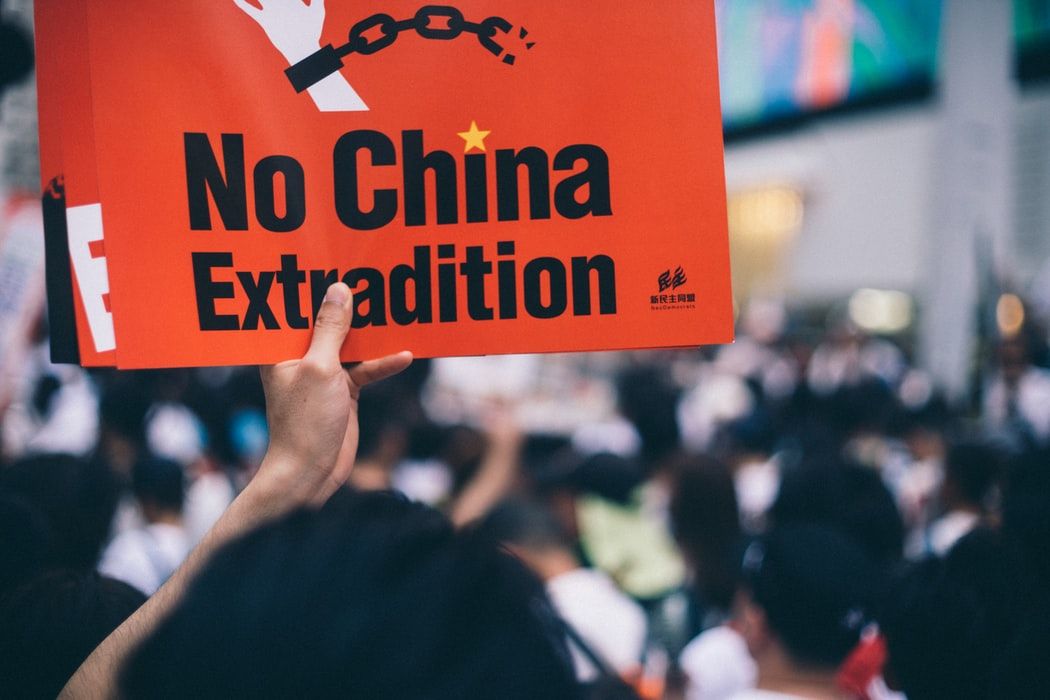By Becky Bealing, Second Year, History
Epigram is an independent and neutral newspaper, aiming to publish opinions from across the student body. To respond with an opposing opinion, please contact commentteam.epigram@gmail.com or join our Facebook writers' group.
Since 12 June 2019 Hong Kong has seen the unfolding of exceptional protests, with an estimated two million people marching against a proposed Extradition Bill, which would allow suspects to be sent to mainland China for trial.
Crucially, this bill represents a seismic shift from the ‘one country, two systems’ principle, which has governed Hong Kong since the UK and China co-signed the Joint Declaration. This established Hong Kong as a Special Administrative Region, able to enjoy democratic freedoms not available in mainland China. Yet, this relatively autonomous system of governance was only ever guaranteed to last until 2047.
Having spent the last five months studying at the University of Hong Kong, these protests came as no surprise given my experience of the hostility towards perceptions of increasingly authoritarian Chinese intervention in politics.
I spoke to both local and Chinese students about their involvement in, and reaction to the protests. Note that all opinions are from real students, but their names have been changed due to security concerns.
Unsurprisingly, young people form the predominant voice of opposition to the bill, with a second-year student, Chen, informing me the year 2047 ‘feels increasingly imminent’ for his generation. Another third-year student, Yumi, explained that she, and those joining her in the Wan Chai area protests, feel they ‘have to fight for Hong Kong’s future’ as the Chinese Communist Party ‘wants to control Hong Kong and erase the freedoms it enjoys’.
In order not to mirror the aggressive undertones of China’s interference, students are primarily expressing their dissatisfaction through demonstrating peacefully on the streets of key government, financial and tourist districts. Notably, on the first day of protests (12 June) the acting President at the University of Hong Kong sent an email to all students outlining that the University would be ‘flexible in applying its rules governing class attendance’.
Given that, unlike in Bristol, attendance for every lecture, seminar and tutorial contributes towards final degree marks, this effectively enabled students to protest without jeopardising their grades.
Social media platforms have also proved crucial for facilitating communication and organisation throughout the protests. However, a first year history student, Abi, informed me her peers are increasingly worried that authorities may use online activities as evidence against them.
Vice-Chancellor of HK Chinese University says that the school will support student protests for #HongKongDemocracy pic.twitter.com/Vhugk7U9h2
— China Outlook (@ChinaOutlookMag) September 1, 2014
Whilst during Hong Kong’s 2014 Umbrella Revolution, Facebook, Instagram and WhatsApp were key platforms to aid activism, Abi expressed the adoption of a new a messaging app called ‘Telegram’. Whilst dubbed the ‘beloved app of terrorists’ due to its heavily encrypted and ‘self-destructive’ format, in this context it serves a protective rather than sinister purpose for these students.
The young people invested in Hong Kong’s future, but who are not present, able, or willing to physically participate in protests, have been able to follow events through the site ‘Campus TV’, run by the University of Hong Kong’s Student Union. A lifelong Hong Kong resident currently interning in Australia, Choy, told me he has been watching the hourly uploaded videos and commentary of the protests. He was keen to emphasise to me that his friends demonstrating in Hong Kong took issue with the depiction, both by Campus TV and the wider media, of the violent elements of the protests.
Whilst most written articles accurately reported that the vast majority of protests were peaceful, the accompanying visual media focused on images and videos of rock throwing, the firing of rubber bullets and wounded policemen. Though these dramatic visuals may grab attention, they reflect only rare incidents of physical conflict.
Choy, in fact, expressed sympathy for the police who he felt ‘have to follow orders to save their job and make a living’. Instead, he criticised the Chief of Police, Stephen Lo Wai-chung, for ‘wrongly regarding what began as a peaceful protest as riots’, subsequently creating ‘unnecessary conflict between police and protesters’.
students at the Chinese University of Hong Kong's medical school are wearing construction helmets in class as a form of protest h/t @liuyun2018 https://t.co/IgaAwRGWbA pic.twitter.com/uEX1kh15vp
— isabella steger (@stegersaurus) July 23, 2019
It seems the protests have been fuelled further by outrage towards the compliance of Hong Kong’s political leaders towards China’s illegitimate interference. Boldly, and under reassurance he would be kept anonymous, Choy told me he believed Hong Kong’s Chief Executive, Carrie Lam, to be directly responsible for ‘disregarding the voice of the people’ through promoting this bill.
Protest placards made similar statements against the authorities, demanding Chinese President Xi Jingping and Carrie Lam end the proposed ‘legalised kidnapping of Hong Kong people to China’.
Democratic freedoms form a central pillar of a Hong Kong citizen’s identity; hence it is no surprise that concerns over China’s system of governance - dependent on limiting freedom and information - continue to ignite anxieties and protests.
Obtaining the opinion of Jia, a Chinese student studying at the University of Hong Kong, proved more difficult, both as she had always been cautious discussing controversial matters with me and because she admitted she had limited knowledge of the protests. This is perhaps a result of current censorship of all the messages, posts and pictures referencing ‘Hong Kong’ on WeChat, the most popular messaging app in China.
Description of men who attacked protesters in Yuen Long:
— Rachel Cheung (@RachelCheung1) July 23, 2019
CNN: mob armed with batons
Guardian: masked thugs
BBC: masked men, suspected to be triad gangsters
SCMP: marauding gang
NYTimes: a mob of men #HongKong govt: some people
Though I could not have imagined the scale of these protests, I was not shocked by Hong Kong citizens’ desire to retain the autonomy and freedom which defines this region. Hongkongers, particularly students, regard themselves as highly distinct from the Chinese – a friend told me she stopped wearing a denim jacket with an embroidered Chinese flag on campus due to fears she may appear to be supporting the regime across the border.
Nevertheless, the willingness of students to act so publicly surprised me given I had come to understand how the traditional Asian concept of ‘saving face’ often underpinned passive behaviour – explained to me by a student to mean the reserved expression of opinions (including political ones) in order to protect your dignity and reputation.
Yet, the overwhelming number of young people driving these protests suggests this generation of Hong Kong students are more interested in protecting their future and freedoms than preserving social norms. As British citizens, whose signature seals the Joint Declaration guaranteeing Hong Kong freedoms until 2047, we too should be taking an interest in this violation of a legal treaty.
Names have been changed in this article to retain anonymity.
Featured Image Credit: Unsplash/@yulokchan
How aware are you of student involvement in the political issues in Hong Kong?









